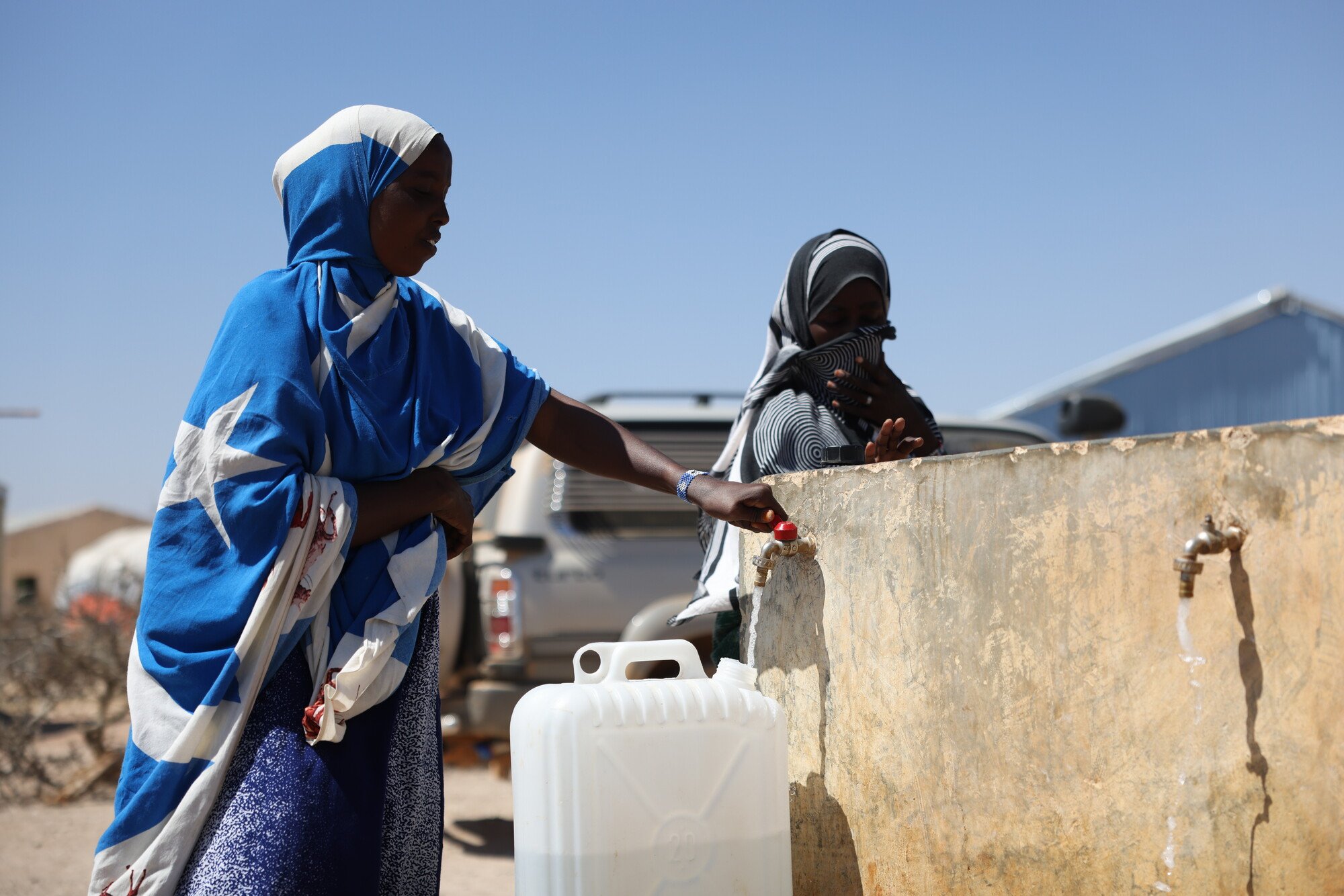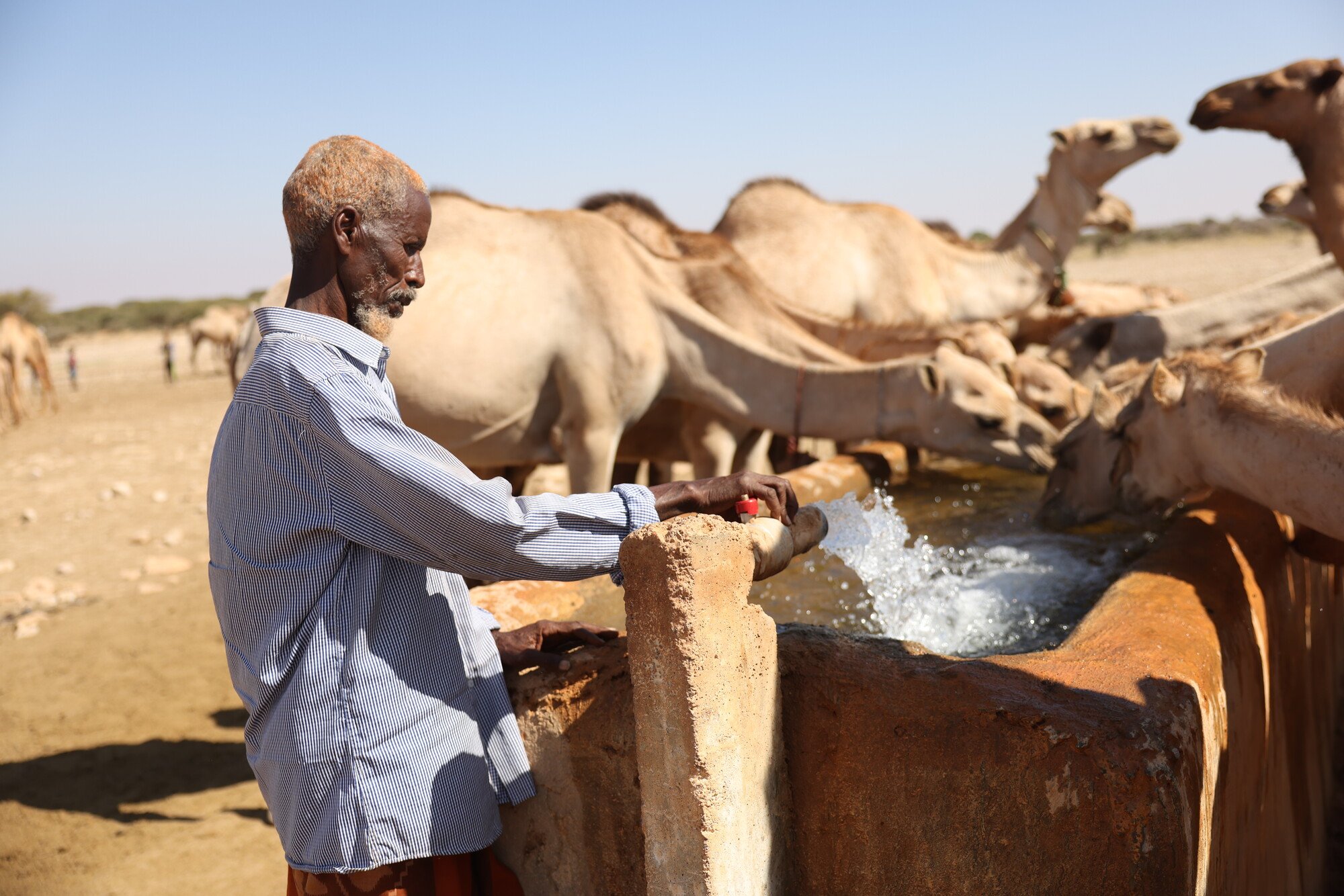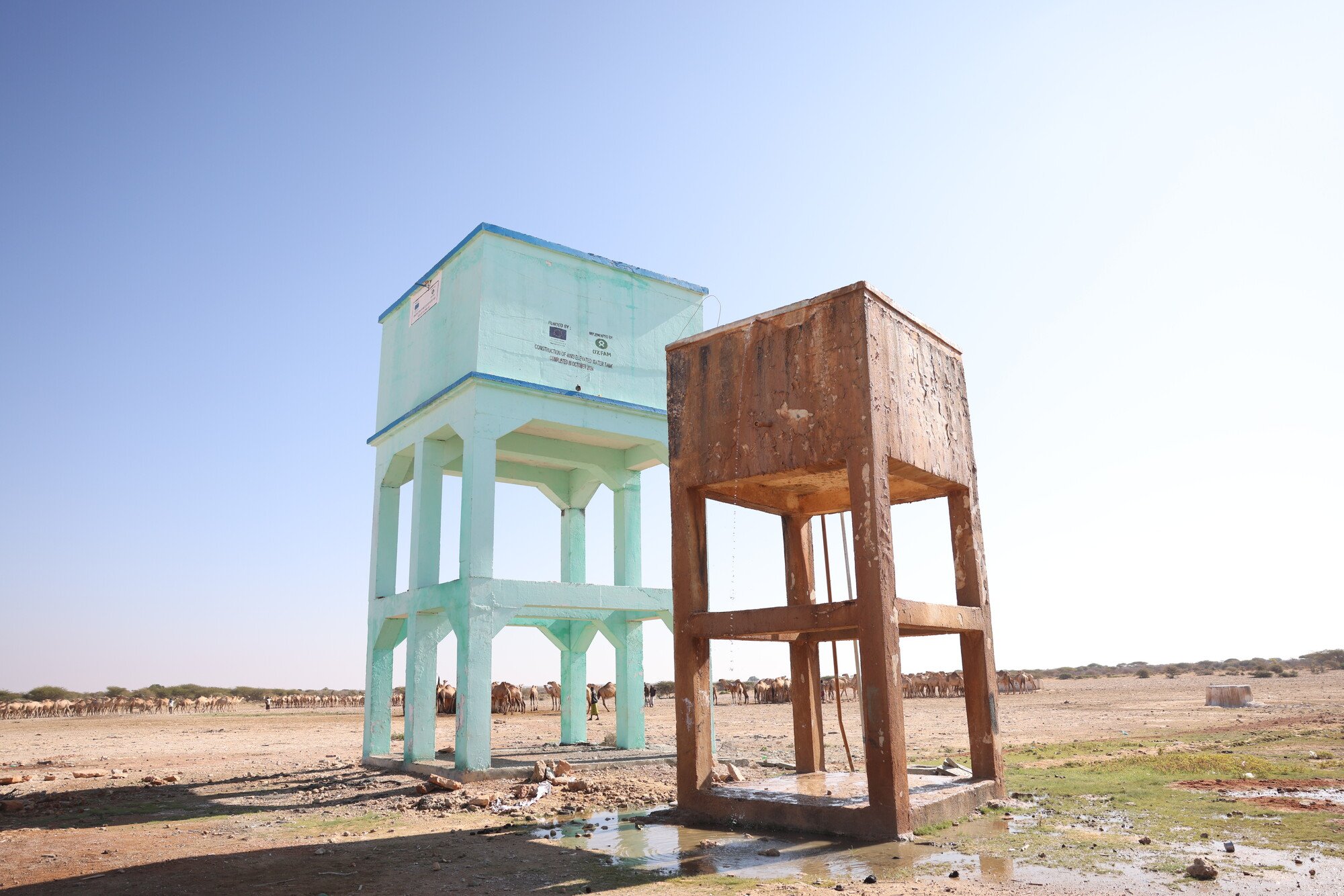Repairs and new equipment improve water access for a community in Somalia.
Getting water for her family in rural Somalia used to involve a lot of effort for Amina Mohamoud Sahardid. She had to walk to the village well that was in such poor condition she had to climb five meters down into it to fill a bucket. She then had to carry heavy containers back to her home. “Women were scared of falling into the well,” she says. At night she had concerns about “being attacked by wild animals.”
The well in her community, a place called Huftiro in the Sool region of northern Somalia, was in very bad shape. “It had no proper equipment…no tanks, no pumps,” says Cabdi Aadan Jaamac, a member of a committee that maintains the well. His neighbor Mohamed Yusuf Bulaale says the state of the well was “very problematic” for the nearly 100 families in the community that rely on it for their water.
Things have changed just in the last year since Oxfam made improvements to the water system. “Oxfam fully equipped the well,” Jaamac says. “They installed tanks, pipes, a new pump, and even troughs for animals. They also built small taps for household use.” Oxfam built two large tanks, each of which hold 50 cubic meters of water, to supply the animal troughs and taps.

“Now,” Jaamac says, “the well provides strong and sufficient water for the entire community.”
Making life easier
In recent decades, Somalia has suffered through periods of conflict, severe drought alternating with flooding rains (related to climate change), and even famine (in 2011). Roughly 9 million of the country’s 19.3 million people need humanitarian assistance, and 47 percent of the population lacks a reliable source of drinking water.
Many households in Sool and other parts of the country rely on raising animals, including camels, goats, sheep, and cows. Changes in the climate, bringing unpredictable rainfall, are affecting pasture lands and water sources. The resulting losses of livestock can devastate families. Between 2020 and 2023, repeated droughts across Somalia killed 3.5 million animals and displaced 2 million pastoralist families.

Having a reliable source of water, and drinking troughs to serve it to livestock, helps families struggling to keep their animals alive, says Mohamed Bulaale. “Today, the well can serve three herds of camels at a time, taking only a few minutes for them to drink,” he explains. As many as 100 camels per day drink water from the well.
The well improvements have also eased the burden on women, who previously spent hours fetching water under difficult and dangerous conditions. Aisha Ali, a nearby resident, says they no longer must travel a long distance to get water. “Now, we use taps connected to the well. There’s no trouble anymore—no need to fetch water from far away, and there’s no heavy lifting.”

Ali goes on to say that Oxfam has also provided community members with jerry can containers for carrying and storing water, and hygiene items to help families reduce the risk of water-borne diseases. Oxfam provided women in Huftiro with menstrual hygiene kits as well. “These things might seem small, but they’ve made a big difference,” Ali says.
“Now that we have water nearby, life is so much easier.”


